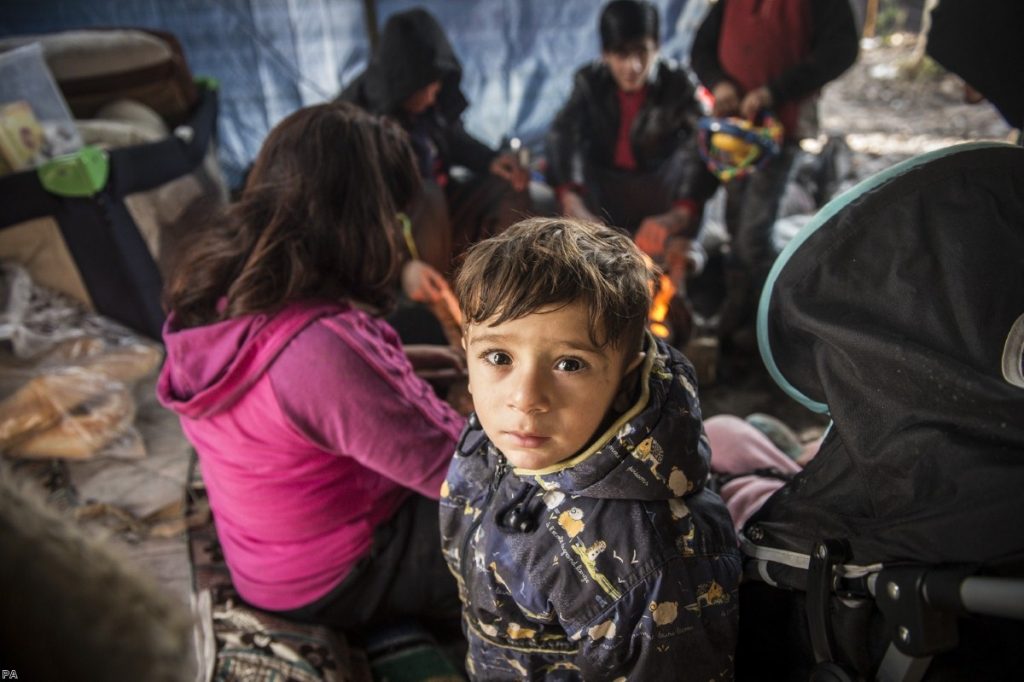By Damon Culbert
Exactly two years after the closing of the Calais Jungle refugee camp, heavily armed French authorities entered a camp at Grande-Synthe, in Northern France, to remove an estimated 1,700 residents. In the early hours of the morning, the refugees were woken and ordered to remove their tents, without any indication of what would happen to them or why they were being moved.
Charity workers supporting the refugees living in the nature reserve observed that the camp was dispersed in much the same disorganised manner as the Calais Jungle. When the French authorities razed the camp at Calais, there was no plan made for the thousands of refugees displaced by its destruction. Two years on, at least 1,000 refugees still live by the border, hoping one day to make the journey to the UK.
With no plans for resettlement elsewhere, the evacuation of Calais left hundreds of unaccompanied children at risk. Many children eligible to apply to settle in the UK were placed on buses away from the border, meaning their chances of regularising their situation were compromised. As the official numbers from Grande-Synth include 400 women and children, it is clear compassion is not high on the agenda for the French authorities.


The remaining shelters erected at Calais are used to house, feed and clothe at least 1,000 refugees. This is inadequate. Many refugees are still sleeping rough and at very high risk of trafficking, abuse and violence.
As President Macron continues to ramp up the government's hard-line stance on refugees, however, all shelters on the border are marked for removal after this winter. March 30th is the final deadline.
As is evident from the 1,000 refugees still in Calais, with more reaching the border regularly, the removal of shelters is not enough of a deterrent to stop people fleeing persecution and torture from making the difficult journey.
The French government may be intending to make life as difficult as possible for those whose goal is Calais, but human safety must take priority. Removing the 'pull factors' of shelter and a humane asylum process have clearly not worked to outweigh the 'push factors' which forced them from their homes in the first place.
Despite Macron's approach to refugees in Northern France, the mayor of Grande-Synthe in 2016 ordered the construction of the first ever internationally-recognised humanitarian camp. These wooden huts replaced swampland shelters which by many accounts were in worse condition than the jungle in Calais.
In 2017, a blaze destroyed most of the huts and ensured that no more could be built where they stood. This forced the refugees back in to tents which were routinely confiscated by French authorities.
The camp's latest incarnation in the Puythouck nature reserve was an incredible contrast between the desolation of those seeking asylum and the middle-class Westerners that surrounded them. Google reviews of the nature reserve are filled with comments about how the refugees have 'a lack of respect for nature'.
As the nearly 2,000 refugees are displaced once more, most likely to registration centres across France, it is unlikely that people will stop making their way towards the border. Thirty-one per cent of those interviewed by Open Migration in Northern France said they believe it's easier to get papers in the UK, which is why they're willing to make the journey.
However, amid a string of Home Office scandals in recent years, the British government's approach to the refugee crisis is clearly no better than the French. In 2016, the Immigration Advice Service represented a case to the High Court which found the government had been downplaying the seriousness of the political situation in Eritrea, which operates a shoot-to-kill policy on people attempting to flee the country, so that it could deny asylum to citizens who made it to the UK.
Eritreans make up one of the largest ethnic groups of refugees in the North of France. They are in the top five nationalities for asylum claims granted in the UK but not in the top five nationalities of asylum applications. This suggests that Eritreans, more than most, are making valid claims that the government was trying to stifle.
In addition, a legal challenge by charity Help Refugees this month proved that the government had failed to keep their promise under the Dubs amendment to the 2016 Immigration Act. The initial amendment suggested the government take 3,000 unaccompanied refugee children from across a number of countries in Europe.
The government’s initial plan was to take 350. This number itself was amended to 480 after pressure from Help Refugees, but its latest legal challenge showed that the government had given insufficient reasons and no written refusal to children applying under the scheme to protect themselves from legal challenges.
A number of places on the scheme were also taken by children eligible for family reunification, meaning that a larger group of children could have been relocated to the UK to start their lives properly.
Reports are growing of children denied asylum making it to the UK illegally, who are then at the mercy of their traffickers. From this, it is clear that tightening the grip on asylum seekers is not keeping them out.
The British government, given the opportunity to support and provide for some of the most vulnerable children on the planet, have consistently weaselled out of their responsibilities.
Two years on from the closure of the Calais Jungle it is clear that this attempt to address the crisis has failed. Repeating the same mistakes won't help. The British and French governments need to take a human approach.
Damon Culbert is a content writer at the Immigration Advice Service.
The opinions in politics.co.uk's Comment and Analysis section are those of the author and are no reflection of the views of the website or its owners.









